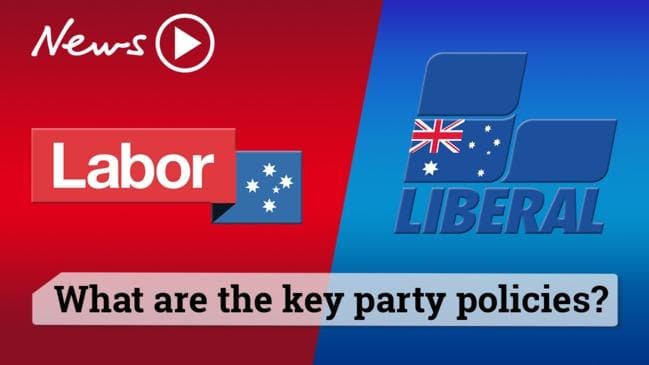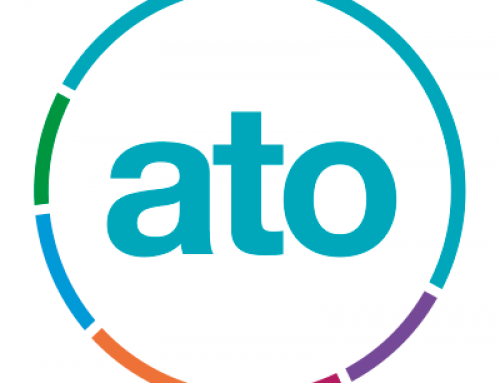The 2019 Federal Election has been called for 18 May 2019, with tax and superannuation policies attracting significant attention.
We have prepared the following summary of tax and superannuation policies for the current Government – the Liberal-National Coalition, and the Australian Labor Party.
The information has been collated from public sources, is accurate to the best of our knowledge, and current as at 9 May 2019.
We also note that these proposed policies must pass through the parliamentary process and may therefore be subject to change.
Australian Labor Party (ALP) policies
| Policy | Key elements | Additional information |
|---|---|---|
| Cost of managing tax affairs | The amount individuals can deduct for the management of their tax affairs will be capped at $3000. This cap will affect individuals, trusts and partnerships.
A carve-out will be provided for individual small businesses with positive business income and annual turnover up to $2 million. The proposed date of effect is 1 July 2019 |
This policy is costed to affect 90,000 individuals and increase revenue by $375million over the forward estimates. |
| Negative gearing | Limit negative gearing to new housing from 1 January 2020.
All investments made prior to this date will not be affected by the changes and will be fully grandfathered. |
Subject to the release of greater detail, the proposal to remove negative gearing seems to also apply to non-housing negatively geared assets such as share portfolios, commercial properties and business operations. |
| Capital Gains Tax | Halve the capital gains tax discount for all assets purchased after 1 January 2020. This will reduce the capital gains tax discount from assets held longer than 12 months from 50 per cent to 25 per cent.
All investments made prior to the 1 January 2020 will be fully grandfathered. The changes to the CGT discount will not apply to superannuation funds or to the 50 per cent active asset reduction concession that applies to small businesses. |
|
| Ending cash refunds for excess imputation credits | Remove cash refunds of excess dividend imputation credits for individuals and superannuation funds from 1 July 2019.
The Pensioner Guarantee means that recipients of the aged pension and other allowance recipients will be protected from the abolition of cash refunds for excess dividend imputation credits when the policy commences in July 2019. Self-managed superannuation funds with at least one pensioner or allowance recipient before 28 March 2018 will also be exempt from the changes. It will not apply to bodies such as ATO-endorsed income tax exempt charities and not-for-profit institutions with deductible gift recipient status. |
The policy is costed to increase revenue by $11.4 billion over the forward estimates from 2018-19 |
| Taxation of discretionary trusts | Introduce a standard minimum 30 per cent tax rate for discretionary trust distributions to mature beneficiaries (people 18 years and above).
The policy will not apply to non-discretionary trusts such as special disability trusts, testamentary trusts (deceased estates), fixed trusts, cash management unit trusts, fixed unit trusts, public unit trusts (listed and unlisted), farm trusts, and charitable and philanthropic trusts. |
This policy is costed to increase revenue by $7.7 billion over the forward estimates. |
| Budget deficit repair levy | Reinstate the Budget Deficit Repair Levy of 2 per cent for taxpayers with taxable income in excess of $180,000.
This would also have the effect of returning the FBT rate to 49 per cent (as it was for three years) and would result in consequential changes to other tax rates linked to the top personal tax rate. |
|
| Low and middle income tax offset (LMITO) | Workers earning up to $37,000 a year will receive a tax cut of up to $350.
For workers earning between $37,000 and $48,000 a year, the value of the offset will increase up to the maximum offset of $1080. |
Same as Liberal-National Coalition. |
| Australian Investment Guarantee | Allow all businesses to immediately expense 20 per cent of the value of eligible depreciable assets in the first year of all new investments, with the balance depreciated in line with normal depreciation schedules from the first year | |
| New Jobs Tax Cut | Small businesses with a turnover of up to $10 million will be able to claim an additional 30 per cent tax deduction on the salary for up to five employees who are:
•younger than 25 or older than 55, or a parent or a carer |
|
| Whistleblowers | Provide protection for whistleblowers who report on entities evading tax to the ATO and, where whistleblower information results in more tax being paid, allow them to collect a share of the tax penalty (a reward of up to $250,000). | |
| Transparency | Require that the ATO’s annual report provide information on the number and size of tax settlements.
Restore the $100 million threshold for public reporting of tax data for private companies, which was raised to $200 million by the Government. Appoint a community sector representative to the Board of Taxation to ensure community sector voices are heard in tax design and review processes. |
|
| Vacant property tax and foreign investors | Facilitate COAG processes to introduce a uniform vacant property tax across all major cities.
Increase fees for overseas investors buying Australian real estate and increase penalties when they break the law |
|
| SMSF direct borrowing | Limit direct borrowing by self-managed superannuation funds. | |
| Superannuation Guarantee fast track | When prudent, ending the freeze of the Superannuation Guarantee at 9.5 per cent and fast-tracking the Superannuation Guarantee increase to 12 per cent.
Phase out the $450 minimum monthly income threshold for eligibility for the superannuation guarantee. |
|
| Superannuation contribution caps and thresholds | Lower the annual non-concessional contributions cap from $100,000 to $75,000.
Further lower the high-income superannuation contribution threshold from $250,000 to $200,000. Reverse the introduction of catch-up concessional contributions and changes to tax deductibility for personal superannuation contributions |
Liberal-National Coalition policies
| Policy | Key elements | Additional information |
|---|---|---|
| Personal income tax | Phase 1: From 1 July 2022, the top threshold of the 19 per cent personal income tax bracket will increase to $45,000
Phase 2: From 1 July 2024, the 32.5 per cent marginal tax rate will be reduced to 30 per cent. Phase 3: From 1 July 2024, the 37 per cent bracket will be abolished. |
ALP supports Phase 1 policies |
| Low and middle income tax offset (LMITO) | Phase 1: LIMTO: Workers earning up to $37,000 a year will receive a tax cut of up to $350. For workers earning between $37,000 and $48,000 a year, the value of the offset will increase up to the maximum offset of $1,080.
Phase 2: From 1 July 2022, the LITO will increase to $700. The increased LITO will be withdrawn at a rate of 5 cents per dollar between taxable incomes of $37,500 and $45,000. The LITO will then be withdrawn at a rate of 1.5 cents per dollar between taxable incomes of $45,000 and $66,667. Together, the increase to the top threshold of the 19 per cent personal income tax bracket and the changes to LITO will lock in the reduction in tax provided by the LMITO when the LMITO is removed |
|
| Medicare levy – low income threshold increase | Increase Medicare levy low-income thresholds so that low-income taxpayers generally continue to be exempted from paying the Medicare levy. | |
| Fast track lower taxes for small business | Corporate tax rate for small and medium businesses will be cut further to 25 per cent by 2021-22, five years earlier than previously planned. This will apply to around 970,000 small and medium companies.
Unincorporated small businesses will receive comparable treatment through an increase in their small business discount rate to 16 per cent. This will benefit around 2.4 million businesses. |
|
| ABN-holder requirements | Australian Business Number (ABN) holders with an income tax return obligation will be required to lodge their income tax return, from 1 July 2021, and will be required to confirm the accuracy of their details on the Australian Business Register annually, from 1 July 2022. | |
| Superannuation – improving flexibility for older Australians | Members of regulated superannuation funds have zero restrictions for making voluntary contributions prior to reaching 65 years of age.
From 1 July 2020 the government intends to increase this age limit and allow 65 and 66 year olds to contribute. Restrictions relating to an individual claiming a spouse contribution tax offset are proposed to be reduced from 1 July 2020. The easing of the rules is by giving spouses aged 70 to 74 eligibility if they meet the work test. Spouses aged 65 and 66 will not need to meet the work test at all. |
|
| Superannuation election policies | Extend the maximum size of self-managed super funds from four to six members.
Expand pension loans scheme to provide around 1.8 million Australians the option to draw down on more of the equity in their own home. Allow contributions to super from the proceeds of downsizing, up to $300,000 for eligible Australians aged 65 and over. Continue to allow self-managed super funds to borrow on a non-recourse basis. |
|
| Superannuation – other measures | Superannuation fund trustees will be allowed to calculate exempt current pension income (ECPI) on a preferred method basis from 1 July 2020.
Since December 2008, tax relief has been available for qualifying superannuation funds that have merged. This tax relief will be made permanent from 1 July 2020. |






Leave A Comment
You must be logged in to post a comment.